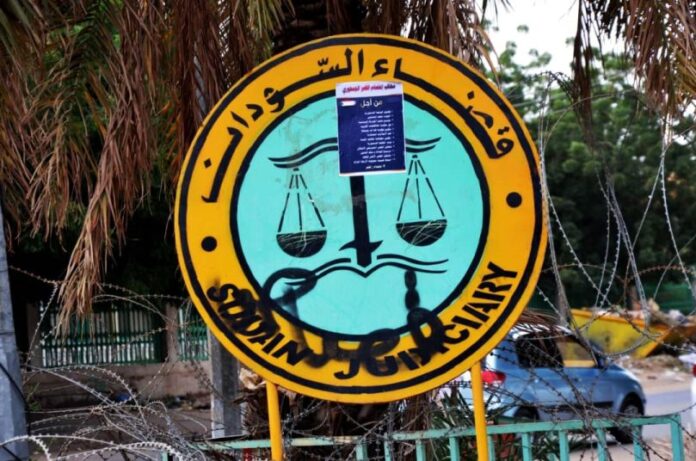In recent days, there has been a surge in news reports regarding accusations directed at citizens and activists under the charge of “collaboration,” a charge that observers believe is often used to eliminate political opponents and war dissenters without clear legal basis. These accusations have led to executions by death penalty, prolonged detentions, as well as practices described as violations of the fundamental rights of the accused.
Some of the accused consider themselves fortunate if they are brought to trial, despite the trials lacking justice standards, while others face an unknown fate at the hands of entities acting as both prosecutor and judge simultaneously. Among them was the leader of the Um Rawaba locality’s Umma Party, Al-Tayeb Obeid Allah, who died on the day the army took control of the city, following his appearance in a recorded video criticizing attacks on civilians and urging directing weapons towards the Rapid Support Forces.
Lawyers defending the accused face significant challenges, including threats against them and their witnesses, with one female lawyer in Northern Sudan being assaulted by unknown individuals and then left abandoned. Several lawyers assigned to defend the accused have been detained by what is known as the “security cell,” even while seeking case details from the public prosecution.
In August 2023, Sudanese army commander Abdel Fattah al-Burhan formed a committee to investigate violations attributed to the Rapid Support Forces. According to press reports, the committee received more than 15,000 complaints against individuals accused of collaborating with those forces. Dozens of death sentences were issued, including more than fifty just in July alone, across different areas under army control.
Most of these arrests are carried out by a group known as the “security cell,” an illegal body led by individuals formerly associated with student security or police forces, which did not exist prior to the outbreak of war on April 15. It uses old premises as detention centers, including homes, schools, and government buildings. Many accuse them of fabricating charges and presenting them to the judiciary, which they consider an insult to the judicial system, warranting accountability under Sudanese criminal law.
This situation has raised widespread concerns within Sudanese society and international human rights organizations, demanding fair trials and respect for human rights, alongside increasing calls to end injustice and hold violators accountable.


